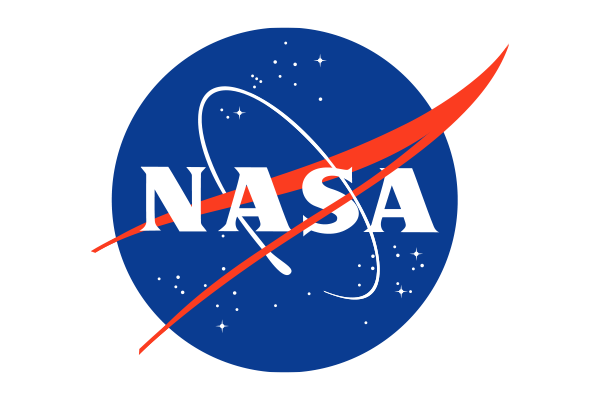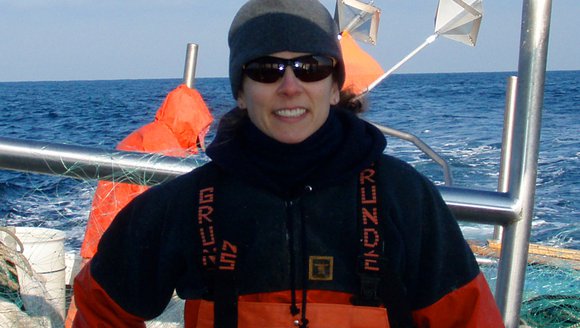Using Satellite Data to Support Sustainable Fisheries
Using modern tools to solve modern problems.
Climate change is creating novel ecosystem conditions, thereby eroding the reliability of fishery management processes that assume historical observations are good indicators of future conditions. New modeling and forecasting approaches can help us account for climate-driven changes in marine ecosystems and support forward-looking fishery management decisions. In this project, we are working to develop a Fisheries and Climate Toolkit (FaCeT) to track and forecast fisheries-relevant physical and biological ocean features that will inform dynamic ocean management and climate-ready fisheries.
Project Goals:
- Use simulated and real-world data to enhance the forecasting skill of species distribution models across changing marine ecosystems.
- Develop dynamic species and vessel distribution models to understand marine environment uses and how use patterns may change under future climate change scenarios.
- Incorporate models into a cohesive toolkit (FaCeT) to assess the efficacy of different management approaches.
Fisheries are an incredibly important ecological, economic and cultural resource that support billions of people throughout the world. Traditionally, management and conservation strategies for these resources have been founded in the assumption that historical observations are good indicators of future conditions. These backward-looking approaches are becoming increasingly problematic as climate change pushes marine ecosystems outside their range of past variability.
Dynamic ocean management accounts for climate-driven change in marine ecosystems and fisheries, and provides a promising alternative approach to support more forward-looking, climate-smart decisions. Our capacity to realize the benefits of dynamic ocean management depends on our ability to develop models that can accurately forecast and project characteristics of key species and fisheries under future climate change scenarios.
In this project, we are working closely with fisheries stakeholders to develop a Fisheries and Climate Toolkit (FaCeT) to support dynamic ocean management approaches for highly migratory fish species and fisheries. Species distribution models are a central application within FaCeT, and our work focuses on understanding the forecasting skill of these models across marine ecosystems experiencing unique responses to recent climate change.
In addition, we will develop a web-based dashboard where users can interact with ocean data and model projections to investigate past, current, and projected future ocean and fishery conditions. Our research will help guide the development of useful models and tools, while also supporting the ability of resource users and managers to make more inform decisions about how to sustain fisheries in the future.
Visit the project website here.
Internal Team
External Collaborators
-
![A portrait of a woman smiling.]()
Rebecca Lewison, Ph.D.
San Diego State University
-
![A portrait of a man smiling]()
Camrin Braun, Ph.D.
University of Washington
-
![A portrait of a man smiling.]()
Elliott Hazen, Ph.D.
NOAA Southwest Fisheries Science Center, University of California Santa Cruz
-
![A portrait of a woman smiling.]()
Stephanie Brodie, Ph.D.
NOAA Southwest Fisheries Science Center, University of California Santa Cruz
-
![A portrait of a man smiling.]()
Nima Farchadi
San Diego State University
-
![A portrait of a woman smiling.]()
Heather Welch
NOAA Southwest Fisheries Science Center, University of California Santa Cruz
Project Sponsor
This project is generously supported by the National Aeronautics and Space Administration under award 80NSSC19K0187.
Read More
-
![Improving Climate-Readiness of US Fisheries]()
Improving Climate-Readiness of US Fisheries
The National Oceanic and Atmospheric Administration (NOAA) has awarded the Gulf of Maine Research Institute $1.1 million to investigate impacts of climate change on groundfish. …
Announcements
-
![Big Data, Big Opportunity for Climate & Fisheries]()
Big Data, Big Opportunity for Climate & Fisheries
Our collective ability to accurately assess and forecast fish abundance is critical to the biological and economic sustainability of the Gulf of Maine.
Announcements
-
![Supporting Regional Fisheries]()
Supporting Regional Fisheries
Our Fisheries Technical Assistance Program (FTAP) provides a range of technical, convening and innovation services to New England’s commercial fishing industry to promote the long-term …
Perspectives
-
![Following Fish on the Move]()
Following Fish on the Move
As marine waters off the Northeast Shelf have warmed over the past 30 years, with particularly rapid warming occuring in the past decade, fisheries in …
Announcements




